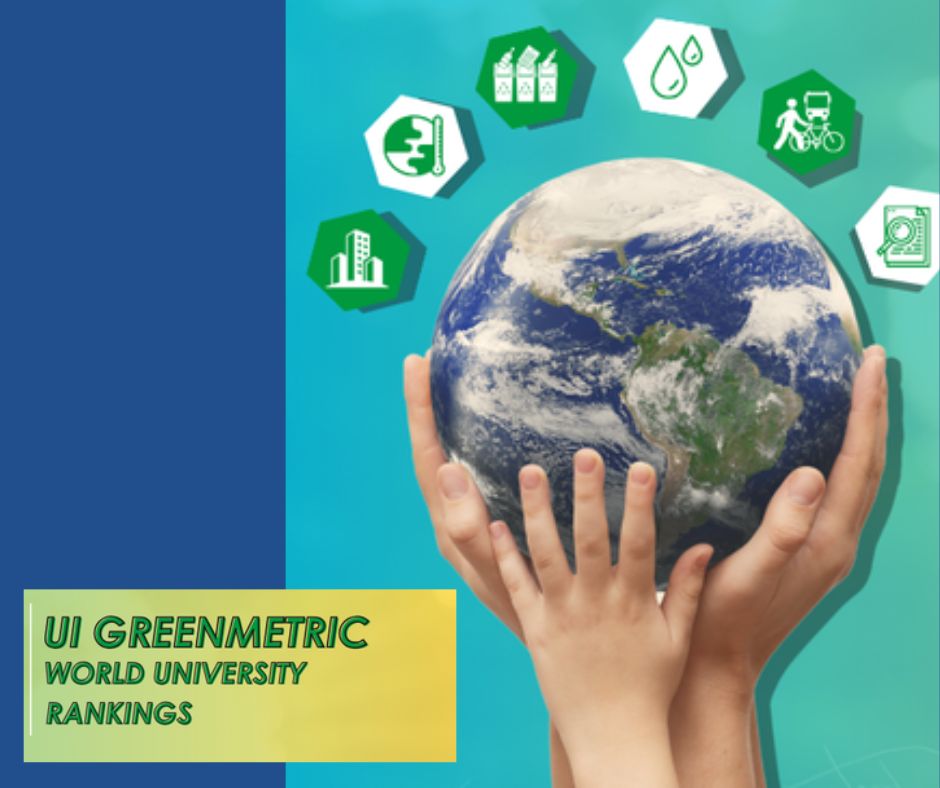The University of Pécs remains the 1st greenest university in Hungary and the 23rd greenest in the world!
In 2023, the University of Pécs was ranked for the eighth time in the "UI GreenMetric World University Rankings" international program. The University of Pécs was ranked 23rd among the world's greenest universities with 1183 universities, and for the fourth time in a row it was the best of the 12 Hungarian universities in the ranking, earning the title of the greenest Hungarian university.
"The convergence towards the sustainability targets shows that the UP has successfully made progress towards the planned targets, which demonstrates the effectiveness of our sustainability efforts. In addition to the ongoing inspiration between competition and ideas, the UP encourages its own institution to address sustainability in all areas of education and research. A systemic approach, the complexity of the sustainability agenda and partnership will enable the challenges to be addressed in a holistic way. It is the mission of the University of Pécs to be a highly recognized institution in the domestic and international higher education market, a key knowledge industry player in environmental, social and economic sustainability that will shape the future of future generations, an important training and research partner of the Hungarian government, and a knowledge centre providing significant research services to business and other organizations supporting the climate goals of Hungary and Central Europe", said Dr. Katalin Szili, member of the Board of Trustees of the UP responsible for sustainability.
"Universities have a critical role to play towards sustainable development, as these institutions not only teach and conduct research, but also play a leading role in shaping society and preparing future generations," added István Decsi, Chancellor of the UP. "Why is it important that the University of Pécs actively strives to achieve the Sustainable Development Goals? First of all, the UP can showcase good and adaptable practices for higher education and organisations in our region. Large organisations with an extensive network of partners, such as the University, are able to make a positive impact and inspire others to adopt a sustainable approach. Secondly, our University has a responsibility to implement lifelong learning. Teaching sustainability and integrating it into the university curriculum and operational approach will enable university citizens to be informed and committed to sustainable lifestyles and working practices, thus contributing to the growth of environmental awareness in society. Thirdly, the university has an extensive infrastructure and resources which require the rapid deployment of sustainable technical solutions. By using renewable energy, reducing waste and minimising its ecological footprint, the UP contributes to achieving environmental sustainability. Last but not least, universities and the UP are also centres of research and innovation and are actively involved in the development of new technologies and solutions that promote sustainability. The results of such research will have an impact on the economy, society and the environment", concluded István Decsi.
"Overall, universities' commitment to sustainable development not only impacts their own communities and the environment, but also gives them the opportunity to take a leading role in shaping a sustainable future and fostering a society that provides a livable environment for future generations", said Tünde Kulcsár, Program Coordinator of the Green University Program of the UP.
According to the list, the world's "greenest" university in 2023 - maintaining its top position from last year – is the Wageningen University & Research in the Netherlands, followed by Nottingham Trent University in the UK and Umwelt-Campus Birkenfeld in Germany.
The newly published ranking is available at https://greenmetric.ui.ac.id/rankings/overall-rankings-2023.

